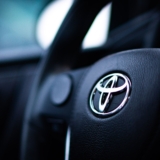Nissan’s ‘Do Not Drive’ Warning is a Wake-Up Call
In a world where automotive safety recalls have become almost routine, Nissan’s recent “do not drive” warning for 84,000 older-model vehicles serves as a stark reminder of the latent dangers that can lurk beneath the hoods of our trusted cars. The culprit? Once again, the infamous Takata air bags, whose lethal potential has already wrought havoc across the automotive industry and left an indelible mark on countless lives.
The Takata air bag recall saga is a cautionary tale of corporate negligence and systemic failure. These air bags, intended to save lives, have instead become ticking time bombs. When deployed, they can rupture violently, sending metal fragments into the cabin with deadly force. This catastrophic defect has been linked to numerous injuries and fatalities, prompting the largest automotive recall in history. The recent warning adds another chapter to this grim narrative. The affected vehicles span several models and years, underscoring the pervasive nature of this defect. For the 84,000 car owners now instructed not to drive their cars until repairs are made, the urgency cannot be overstated.
Behind every recall statistic lies a human story. Consider the countless drivers and passengers who have unknowingly been at risk every time they turned the ignition. The psychological toll of realizing that a vehicle, often considered a safe haven, could harbor such lethal potential is immense. It’s a profound breach of trust between manufacturers and consumers. For the owners, this breach is especially poignant. They are now faced with the immediate inconvenience and potential peril of arranging alternative transportation while they await repairs. The directive to cease driving these vehicles immediately is both a testament to the severity of the defect and an indictment of the systemic failures that allowed these dangerous air bags to proliferate.
The broader question that arises from them warning is one of corporate accountability. How did we reach a point where millions of vehicles with known deadly defects were allowed on the roads? The answer lies in a tangled web of regulatory lapses, corporate missteps, and a troubling prioritization of profit over safety. Takata’s case is particularly egregious, involving falsified data and delayed disclosures. Yet, the onus also falls on the automotive giants who continued to equip their vehicles with these defective air bags. The ripple effect of these decisions has been devastating, eroding public trust and endangering lives.
For Nissan, this recall is a chance to reassert its commitment to consumer safety. The company must not only expedite the replacement of the defective air bags but also ensure that affected owners are supported through this process. Providing clear instructions, arranging for alternative transportation, and offering transparent timelines are essential steps. Moreover, this recall should serve as a catalyst for the entire automotive industry to re-evaluate its safety protocols. It’s a clarion call for more stringent oversight and a renewed focus on consumer protection. The lessons learned from the Takata debacle must inform future manufacturing practices and regulatory frameworks to prevent such widespread failures.






